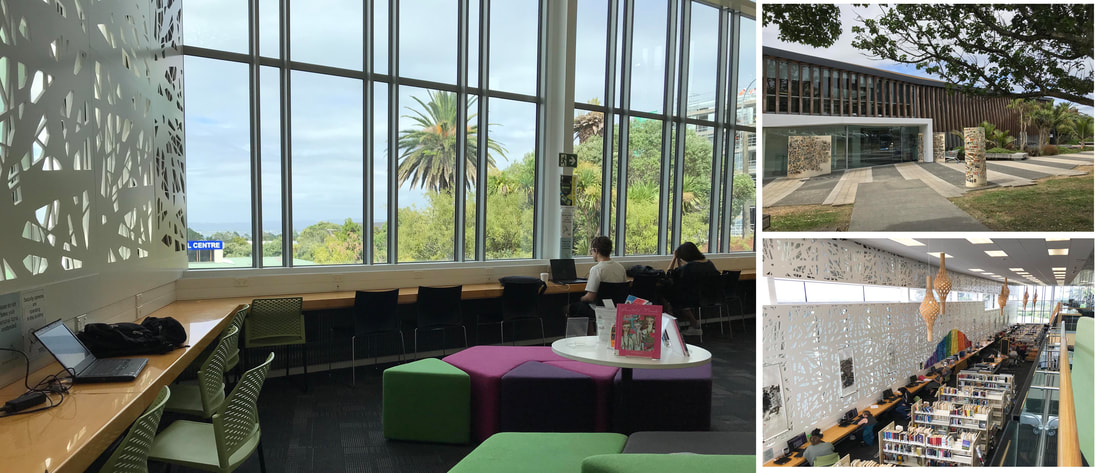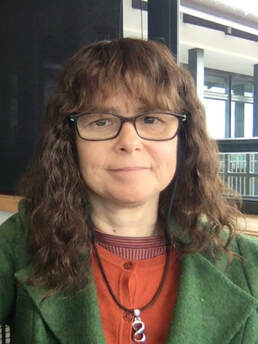Libraries in the digital age: from places of collections to spaces for learning and creation
Public libraries have dramatically changed over the past 20 years. The quiet spaces where we were once surrounded by multiple shelves and stacks of books, have been transformed by attractive and often bright flexible furnishings. In corners, we often find desks and computers with free access to Wi-Fi, and multiple power points are scattered around, inviting patrons to plug their own gadgets. Silence is no longer the overarching rule, as different spaces invite engagement in a range of services and activities, from working in small groups to participating in maker activities, and they also maintain reserved areas for reading or quiet reflection.
But alterations in libraries are not restricted to their objects and spaces. Libraries have carved a strong and powerful role as community hubs, attracting and supporting people to learn new skills. They are places to meet and greet, to listen to stories, to attend workshops, to make crafts, and to do many other things. Libraries have worked hard to find new ways to continue to serve their communities and to renew their social importance, and in so doing, have repositioned themselves – from places of collections to spaces for learning and creation.
Many of these changes have come about in response to emerging trends in the library sector, which acknowledge that we are living in a digitized world. With the exponential growth in e-book loans and demands to invest in hybrid collections, libraries had to repurpose those spaces that were once filled with shelves and books. Less floor space to collection items gave way to new community meeting spaces and other areas. And so libraries have been developing a wide range of learning programmes and initiatives, with some specially crafted to promote digital literacies and enable their community members to share resources, to connect and to upskill. In sum, libraries are supporting their patrons (to learn how) to fully participate in the wider global world.
But alterations in libraries are not restricted to their objects and spaces. Libraries have carved a strong and powerful role as community hubs, attracting and supporting people to learn new skills. They are places to meet and greet, to listen to stories, to attend workshops, to make crafts, and to do many other things. Libraries have worked hard to find new ways to continue to serve their communities and to renew their social importance, and in so doing, have repositioned themselves – from places of collections to spaces for learning and creation.
Many of these changes have come about in response to emerging trends in the library sector, which acknowledge that we are living in a digitized world. With the exponential growth in e-book loans and demands to invest in hybrid collections, libraries had to repurpose those spaces that were once filled with shelves and books. Less floor space to collection items gave way to new community meeting spaces and other areas. And so libraries have been developing a wide range of learning programmes and initiatives, with some specially crafted to promote digital literacies and enable their community members to share resources, to connect and to upskill. In sum, libraries are supporting their patrons (to learn how) to fully participate in the wider global world.
Digital equality in a digitized world
Technologies have changed the way we go about our daily lives, not only in our corner of the world but also globally. The ways we interact with our friends, how we shop, work and do our banking, all require our conscious use of technology. JISC defines digital literacies as the ‘capabilities which fit someone for living, learning and working in a digital society.’ But not everyone in Aotearoa New Zealand has equal access to this digitized world. Many New Zealanders need to be supported to be able to confidently navigate the digital realm.
Libraries are of particular significance to those at the margins of society – especially those with restricted access to networked technologies, or those lacking skills and knowledge about the digital world. In Aotearoa New Zealand, several different groups may fall into this profile, for example, families in low socio-economic communities, people with disabilities, migrants and refugees with English as a second language, those with limited education, those who left the school system before developing basic digital literacy skills, amongst many others. And yet, those likely to be in deepest need of help may lack the appropriate skills or means to access and communicate with government agencies and reach the services and support they crave. Digital inclusion involves finding ways to support those disadvantaged individuals and groups to gain access and develop the necessary skills to use digital technologies and actively participate in society. With 314 local public libraries in Aotearoa New Zealand, libraries are well positioned to implement strategies that address the digital divide and to facilitate digital inclusion across urban and rural communities.
It is important to note, however, that there are different forms of digital equality. Digital equality can refer to access to a technological device or to the Internet, but has also other meanings connected to having autonomy of use, an ability to access different forms of social support, an intentional and critical use of digital networks that discerns fact from fiction, and people’s engagement as active creators rather than passive consumers of information. So, digital equality does not just relate to having or not having access to networked technologies, but it is also about the ability to critically evaluate and meaningfully participate in the digital world. If not addressed, these different layers of digital equality may widen the gap between those who can experience meaningful digital inclusion and those who cannot.
Technologies have changed the way we go about our daily lives, not only in our corner of the world but also globally. The ways we interact with our friends, how we shop, work and do our banking, all require our conscious use of technology. JISC defines digital literacies as the ‘capabilities which fit someone for living, learning and working in a digital society.’ But not everyone in Aotearoa New Zealand has equal access to this digitized world. Many New Zealanders need to be supported to be able to confidently navigate the digital realm.
Libraries are of particular significance to those at the margins of society – especially those with restricted access to networked technologies, or those lacking skills and knowledge about the digital world. In Aotearoa New Zealand, several different groups may fall into this profile, for example, families in low socio-economic communities, people with disabilities, migrants and refugees with English as a second language, those with limited education, those who left the school system before developing basic digital literacy skills, amongst many others. And yet, those likely to be in deepest need of help may lack the appropriate skills or means to access and communicate with government agencies and reach the services and support they crave. Digital inclusion involves finding ways to support those disadvantaged individuals and groups to gain access and develop the necessary skills to use digital technologies and actively participate in society. With 314 local public libraries in Aotearoa New Zealand, libraries are well positioned to implement strategies that address the digital divide and to facilitate digital inclusion across urban and rural communities.
It is important to note, however, that there are different forms of digital equality. Digital equality can refer to access to a technological device or to the Internet, but has also other meanings connected to having autonomy of use, an ability to access different forms of social support, an intentional and critical use of digital networks that discerns fact from fiction, and people’s engagement as active creators rather than passive consumers of information. So, digital equality does not just relate to having or not having access to networked technologies, but it is also about the ability to critically evaluate and meaningfully participate in the digital world. If not addressed, these different layers of digital equality may widen the gap between those who can experience meaningful digital inclusion and those who cannot.
What are public libraries doing to support digital inclusion in the community?
The Equity Through Education Centre recognizes that technology plays a powerful role in bringing about equitable societies. In 2019, I have joined several members of the research centre – Phillipa Buttler, Maggie Hartnett, Alison Kearney, and Mandia Mentis – in a project that is exploring the role of public libraries in promoting digital inclusion in Aotearoa New Zealand. The project is funded by InternetNZ, and includes ongoing close consultation with LIANZA. In its current phase, we are developing and implementing a national survey to identify the types of activities and role of public libraries in enabling New Zealand citizens to access digital technologies and services, and how their current programmes and initiatives are enabling digital citizenship within urban and rural communities across the country.
The Equity Through Education Centre recognizes that technology plays a powerful role in bringing about equitable societies. In 2019, I have joined several members of the research centre – Phillipa Buttler, Maggie Hartnett, Alison Kearney, and Mandia Mentis – in a project that is exploring the role of public libraries in promoting digital inclusion in Aotearoa New Zealand. The project is funded by InternetNZ, and includes ongoing close consultation with LIANZA. In its current phase, we are developing and implementing a national survey to identify the types of activities and role of public libraries in enabling New Zealand citizens to access digital technologies and services, and how their current programmes and initiatives are enabling digital citizenship within urban and rural communities across the country.
|
Lucila Carvalho is a senior lecturer in e-learning and digital technologies at Massey University (Auckland). Lucila’s research interests are in networked learning, design for learning and innovative learning environments. Her research explores how knowledge and social structures shape the design and use of technology, and how technology influences social and educational experiences. She has published and presented her work at various international conferences in the fields of education, sociology, systemic functional linguistics and design.
T: @lucila_fdc W: https://lucilacarvalho.wordpress.com/ |


